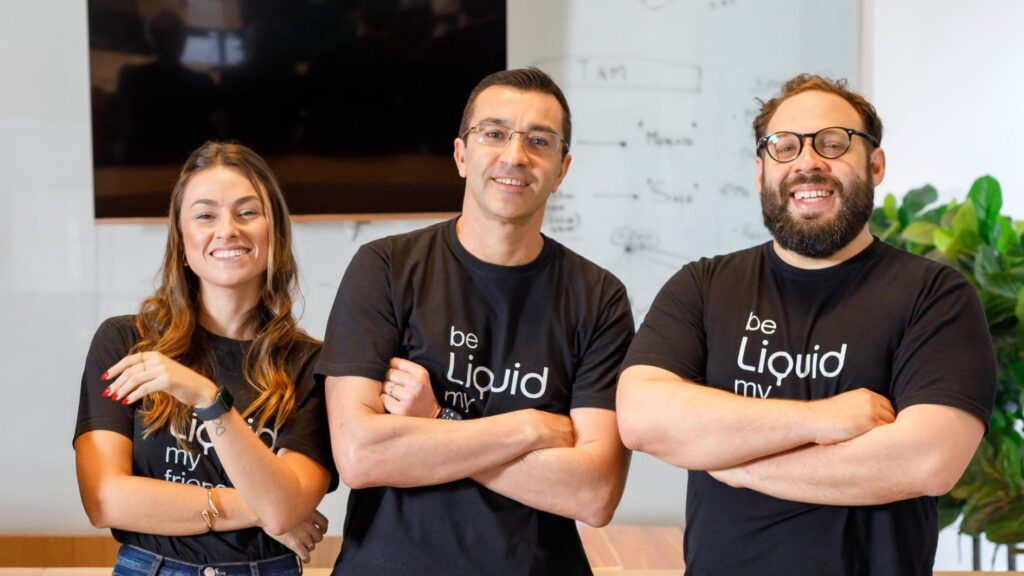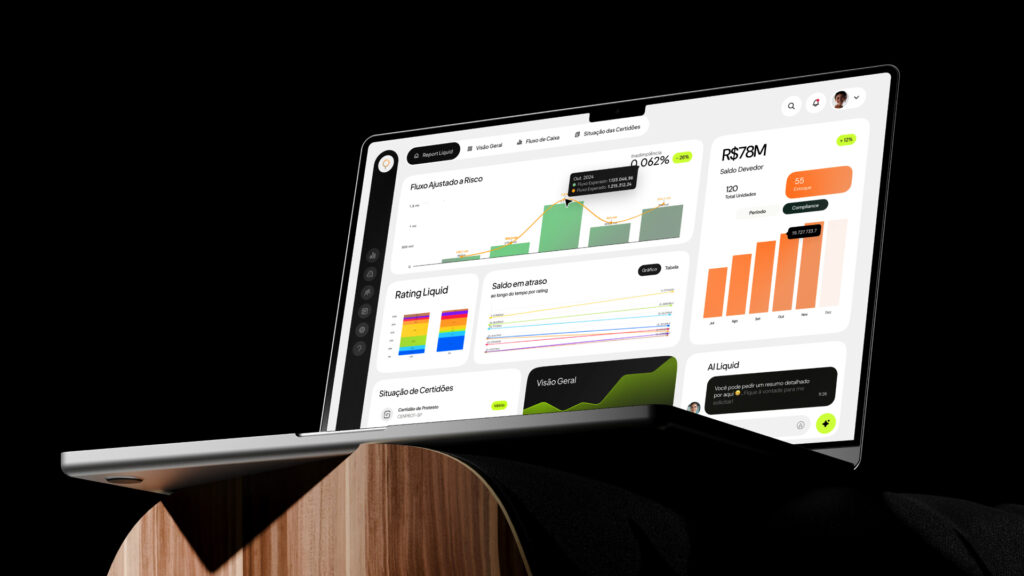Why We Invested in Liquid

Liquid co-founders Luiza Caram, CCO; Odair Mofato, CRO; and Thiago Yaak, CEO. (Liquid)
Brazil faces a housing deficit of around six million units, with millions more families living in overcrowded, precarious, or financially unsustainable conditions.
Developers are eager to build, but structural bottlenecks, like slow and fragmented credit checks, limited financing channels for small and mid-sized firms, and long delays in securing liquidity, leave projects stalled or abandoned. Without faster access to funding, construction cycles drag on, portfolio quality suffers, and banks hesitate to lend at scale. Every delayed project means millions locked and hundreds of families waiting.
It was into this environment that Thiago Yaak, Luiza Caram, and Odair Mofato founded Liquid in 2023. The São Paulo-based fintech provides an AI-powered co-pilot and dynamic platform that automates credit analysis, improves transparency across receivables, and gives lenders and developers better tools to manage risk.
We were drawn to the way Liquid approaches a system-wide solution through the CFO stack in a way that is ideally suited to Brazil’s current market conditions, and it’s why we joined the SaaSholic-led $2.1 million seed round announced in August.
Serial Entrepreneurs With a Rare Combo of Expertise
Becoming the “invisible infrastructure behind all housing transactions in Brazil” is an ambitious goal, to understate it, but if there was a team to do it, Liquid has it.
CEO Thiago Yaak is a serial entrepreneur with deep AI and credit expertise. Chief Commercial Officer Luiza Ribeiro Caram brings over 15 years in the real estate sector. And CRO Odair Mofato Jr. has two decades in credit modeling and fintech leadership.
Thiago and Luiza met at RisKnow, a Brazilian startup that was focused on credit risk analysis and compliance tech. It was here that they realized the massive opportunities they could address by specifically focusing on real estate credit. Odair had been a consultant they worked with before launching Liquid, and the three took advantage of the AI explosion kicked off in 2022 to tackle their new target. Liquid later acquired RisKnow, which is one of the reasons Liquid’s platform is so robust.
And it’s registering with the target customer. Since founding, Liquid has processed over $32 billion in credit decisions, enabling financing for approximately 50,000 homes. It has 57 active clients, covering more than 300 projects, serving leading developers such as Cury, Direcional, Moura Leite, and Pacaembu.
It has been on a strong growth trajectory since 2024, with 7x revenue growth in the past year, surpassing $1 million in annual recurring revenue (ARR). And it’s sticky: Once developers adopt Liquid, they continue using it across future projects, driving a 2.3x increase in average contract size.
“What excites me most is seeing the real ROI our clients capture,” Thiago told us. “Among our early clients, a developer achieved a 12% uplift in portfolio value at securitization, reporting ROI of up to 40x, all because we helped reduce portfolio risk and lower their cost of capital. That’s the kind of transformation we want to scale across the market.”
The Co-Pilot Specifically for Brazil’s Real Estate Market
Broadly speaking, the role of a CFO at a real estate company is about orchestrating liquidity, lowering the cost of capital, and protecting margins. Liquid makes CFOs sharper, faster, and more credible to external funders.
Cancellations are a material challenge in the Brazilian real estate market, and disrupt cash planning when weak buyer credit quality forces refunds. To reduce this from happening, Liquid automates buyer screening with AI-driven scoring across hundreds of indicators and monitors receivables portfolios, making inflows more predictable.
Liquidity planning is another pain point, as multiple projects at different stages make it difficult to spot gaps, especially when construction costs rise or rates spike. Liquid provides one-shot diagnostics and scenario simulations, allowing CFOs to test shocks and adjust strategies early.
Accessing capital markets also depends on transparent, trustworthy data, and Liquid’s standardized analytics and risk reporting speed up Certificado de Recebíveis Imobiliários (CRIs; the Brazilian equivalent of American mortgage-backed securities) structuring while lowering spreads.
On the operational side, many finance teams lose time to manual reconciliations, but Liquid automates project-level analysis with dashboards, freeing staff to focus on higher-value planning.
Finally, when deciding which projects to launch, CFOs can use Liquid’s side-by-side risk and cash-flow comparisons to allocate scarce capital more effectively, prioritizing projects with stronger payback and improving portfolio returns.
Unlike enterprise resource planning (ERP) software, Liquid spans the full journey from day 1 of the contract through securitization, bridging data, risk, and liquidity planning in one platform.

A Massive Opportunity Where Success Benefits the Whole Market
The entire Brazilian residential real estate market is valued around $60 billion, but right now Liquid is laser-focused on how it grows by region in Brazil, focusing now on homebuilding in the southeastern part of the country.
It will be using this latest funding to scale sales operations, and expand its product suite to serve more developers, banks, and funds, as it becomes more widespread as the Brazilian real estate CFO’s tactical console for liquidity management.
As Thiago put it, “the real win is being part of the structural shift in Brazilian housing finance.” Brazilians' savings, the typical way of funding housing in the country, are shrinking and interest rates have remained at the highest level in two decades, and that is pushing the market toward capital markets. Liquid is at the center of this transition, making projects more bankable, securitizations more efficient, and opening the way for more sustainable growth across the entire ecosystem.
“Our mission is not to optimize the current process, but to make it fluid enough to drive new products, new markets, and new value creation — unlocking opportunities at the core of Brazil’s housing finance shift,” Thiago said.